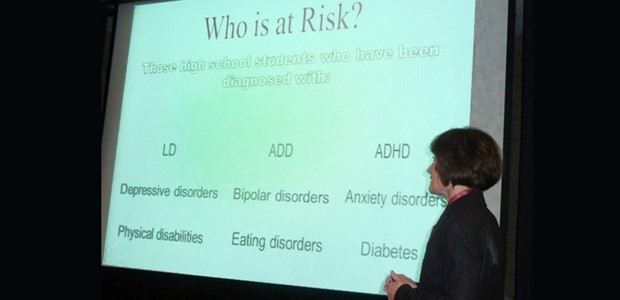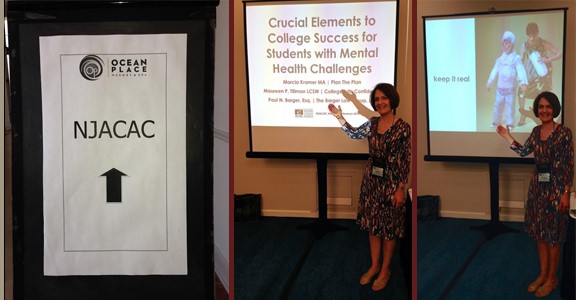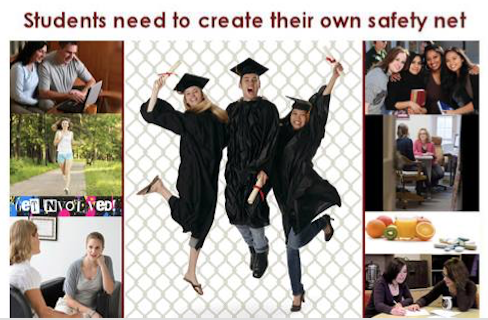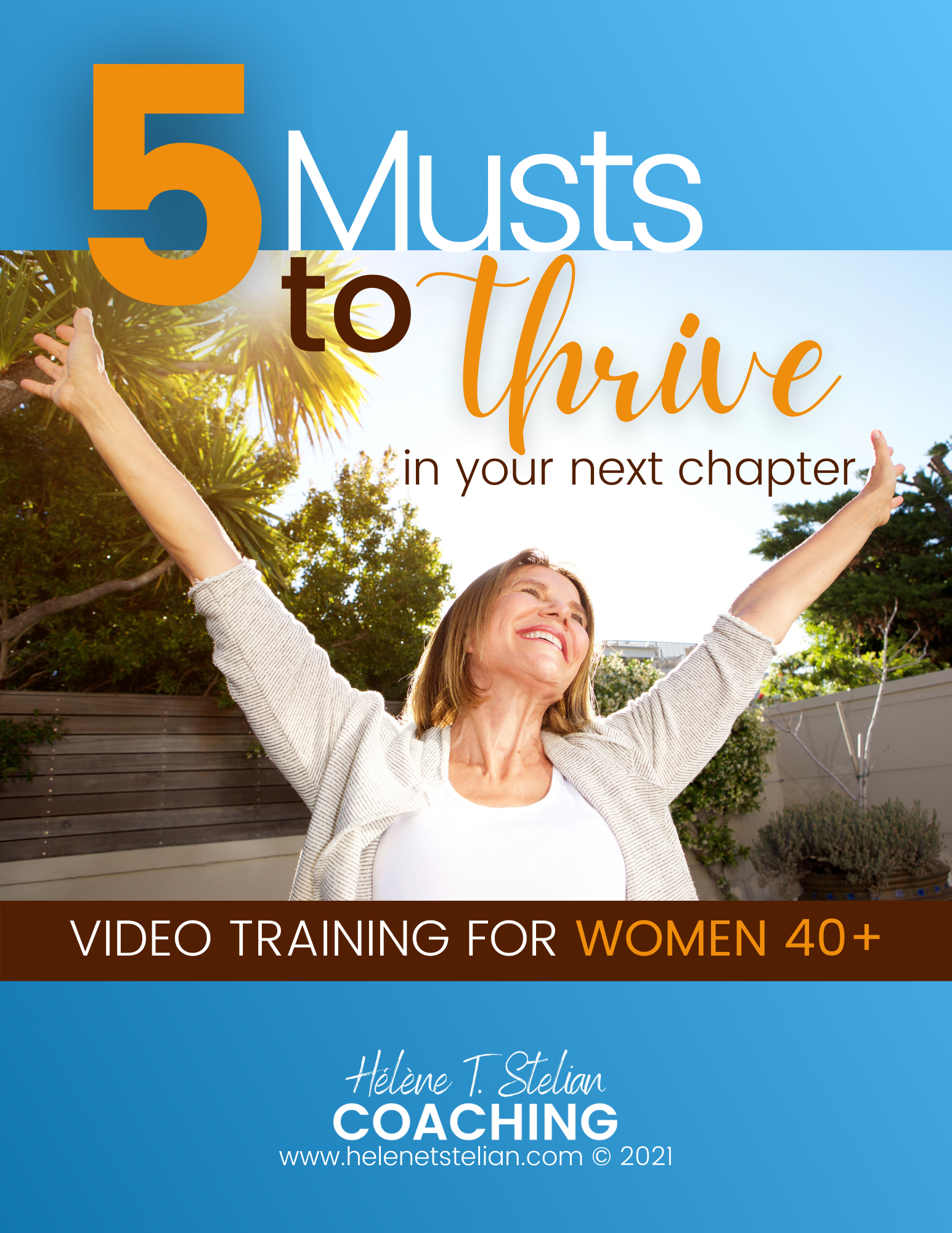 You are a Licensed Clinical Social Worker with 35 years of experience working with adolescents, families and adults. Why did you feel a particular need to support young adults and parents through the college experience, and into adulthood, with your practice, College with Confidence?
You are a Licensed Clinical Social Worker with 35 years of experience working with adolescents, families and adults. Why did you feel a particular need to support young adults and parents through the college experience, and into adulthood, with your practice, College with Confidence?
I created College with Confidence about 13 years ago when I experienced an increase in students coming to me for therapy, who had a crisis in college and needed to return home. The students were devastated and the parents were confused and extremely worried. I decided to create a proactive college transition service for high school students, as well as help college students become emotionally stable and resilient and decide on the best path from there. I have always felt dedicated to helping support people with transitions, feeling strongly that preparation creates confidence, going all the way back to my Master’s project in 1975: A handbook for new stepfamilies.
My underlying professional lens is suicide prevention. The high school to college transition is considered an at-risk transition. Teaching tools and skills to keep students from sinking as well as educating parents, school personnel, and the medical community about how to prepare for the transition is extremely valuable.
What skills do you feel teens need to have before leaving home for college, and how can parents support them in gaining these skills?
The life skills include: assertiveness/self-advocacy; coping with stress/anxiety/depression; being realistic about who you are; time management; financial literacy; healthy relationship with alcohol, drugs, food, and gambling; and resiliency.
There are many ways parents can help. The first step is taking off the bubble wrap to encourage your child’s independence. Make a date to spend time talking about the importance of preparing for the college transition, which is an opportunity for them to have a confident, happy, and successful experience. Go over the list of life skills with your son or daughter and discuss with them how the college transition is challenging for many—preparing in advance can make all the difference. They are going from a life where they have been supported and monitored by parents, teachers, and friends, into an environment where they will need to be largely self-reliant within an unstable community, full of other students also making difficult transitions.
Be supportive, honest, and specific about your concerns, whether it is with their stress level, lack of assertiveness with friends, or irritability. Discuss these issues with as much specificity as you can, presenting them with examples of the situations they might find themselves in, asking how they might improve upon areas they find challenging.
Plan to revisit how they are progressing.
If there is an area which you are concerned about, this is a time when you have some control over them getting help. When they get to college, there is little you can do to make this happen.

What should parents be on the lookout for as their teens’ departure from home approaches?
Unusual anxiety, changes in eating and sleeping patterns, mood changes, changes in enjoyment levels, and self-destructive behaviors. Whenever concerned, never hesitate to consult with a professional.
For teens who have been in therapy or other treatment for emotional, psychological, or behavioral issues while in high school, how do you suggest they continue to receive the support they need when living in college, away from home?
This is a very serious concern. Hopefully some of the groundwork was done in choosing the college, in terms of fit and services. Once in, it is important to explore the services together, including the option of getting disability services for psychological issues—a support that many people don’t realize exists.
Students need to “own” their issues before going to college. Even if their chosen school has the best of services on campus, it doesn’t matter if the students don’t access these services and commit to responsibly using them. This is a highly individualized area that I am devoting myself to as a therapist and educator. It is important to note that many high school seniors are not ready or best served going away to college; they may benefit tremendously from attending a local college or taking a gap year.
What needs do you see for young adults as they move through college and into the workplace or further schooling?
I changed the name of my business to College with Confidence and Beyond a few years ago for this very reason—skill building and the creation of competent independence is ongoing. Parents, support their decision-making but stay out of it as much as you can. If you are discussing their lives and decisions, have them weigh the pros and cons and reflect on the consequences. Sometimes they just need to make mistakes and we need to sit back and let it happen. Hopefully, they won’t be big mistakes and the learning will be invaluable.

How do you work with college-bound teens, their families, and young adults in your practice?
I work in person and remotely. I spend the majority of the time with the young adult, but there are times I see the parents alone for their concerns or see the parent and student together. Whatever works!
I have a toolbox of techniques for helping students with life skill building, anxiety, stress, and depression relief. Whether the student is transitioning to college from high school or attending college, we create a success plan, identifying the key services and behaviors that are essential to their wellbeing.
One of my specialties is mindfulness meditation and I have been trained to do the only evidence-based program for emerging young adults: Koru Mindfulness Meditation. It is amazing for students who feel stress and anxiety, and can really help them to feel happier and more present. I also do webinars for parents.
Will you share examples of clients you worked with and how you helped them?
I’ll give you an example that has applied to a number of patients I’ve seen. Social anxiety is often an unrecognized problem for male teens and young adults who do well academically and at structured activities after school.
I find a lot of them glued to their video games and technology after school; they have little confidence and experience with initiating in their social life.
First, I help them identify the underlining reasons for their anxiety and support their challenges. I explore what approach they respond well to, including cognitive-behavioral therapy. The most important thing is that they begin to make changes here and now, in high school. When they are close to leaving, we create a college success plan, which I mentioned before. This starts with roommate communication, along with orientation, and joining groups. We keep in touch weekly and tweak the plan as needed. I have had tremendous success with this.

This image represents a college success plan I created with a client who had a mixture of challenges going off to college, including anxiety, ADD, and academic hurdles. Starting on the top left, this plan includes contact with parents, regular exercise, getting involved, going for counseling, making friends, meeting professors during their office hours, healthy eating, taking meds, and going for tutoring and academic help. It may seem like common sense that these lifestyle choices are helpful to students, but during this period of transition, it can be incredibly difficult for them to follow through. That’s why planning ahead and monitoring their progress is so important.
What are some of your favorite resources for young adults and their parents preparing for the transition away from home?
Books:
Emerging Adulthood: The Winding Road from the Late Teens Through the Twenties by Jeffrey Jensen Arnett
Letting Go (Fifth Edition): A Parents’ Guide to Understanding the College Years by Karen Coburn and Madge Traeger
College of the Overwhelmed: The Campus Mental Health Crisis and What to Do About It by Richard Kadison and Theresa DiGeronimo
The Launching Years: Strategies for Parenting from Senior Year to College Life by Laura Kastner and Jennifer Wyatt
It’s So Much Work to Be Your Friend: Helping the Child with Learning Disabilities Find Social Success by Richard Lavoie
What to Do When College Is Not the Best Time of Your Life by David Liebow
Making the Most of College: Students Speak Their Mindss by Richard Light
The Blessing of a B Minus: Using Jewish Teachings to Raise Resilient Teenagers by Wendy Mogel
The Overachievers: The Secret Lives of Driven Kids by Alexandra Robbins
Surviving an Eating Disorder: Strategies for Family and Friends by Michelle Siegel and Judith Brisman
Life After High School: A Guide for Students With Disabilities and Their Families by Susan Yellin and Christina Bertsch
Moving to College: What to Do, What to Learn, What to Pack by Hélène Tragos Stelian
Other Resources:
The Chronicle of Higher Education features interesting articles such as this one: “Students Who Feel Emotionally Unprepared for College Struggle in the Classroom.”
Koru evidence-based meditation for college aged adults.
Grown and Flown blog covering issues related to raising kids ages 15-25.
American College Health Association.
TeenHealthFX is a website for teens on any and all questions re. health, relationships, body, and sexuality.
The Jed Foundation is the nation’s leading organization working to promote emotional health and prevent suicide among college students.
Contact Maureen Tillman at mtillmanlcsw@gmail.com or 973-267- 5586
College with Confidence and Beyond
Twitter: @MaureenPTillman
Maureen Price Tillman, L.C.S.W. received a Masters in Social Work from the University of Pennsylvania in 1975, and has worked as a psychotherapist with adolescents, adults, and families ever since.
Thirteen years ago, she founded College with Confidence. The focus of this psychotherapy, consultation, education, and training service is to address and support the mental health challenges of adolescents transitioning into and throughout college, and moving toward adulthood. Maureen has a private practice with offices in Morristown and Maplewood, New Jersey. She and her husband Wayne’s two children are married, one living in Los Angeles and the other in Mexico City, and they have a new grandbaby in Los Angeles.






A wonderful and timely article. Thank you Maureen for creating College with Confidence. I agree that there is such a need for this type of support system for kids and adults.
Thanks so much Lori!
Excellent advice and information for parents and kids of all ages. It’s a tough time for families these days with all the stress of growing up and transitioning to college and beyond.
Kudos to you for sharing so openly what many do not talk about.